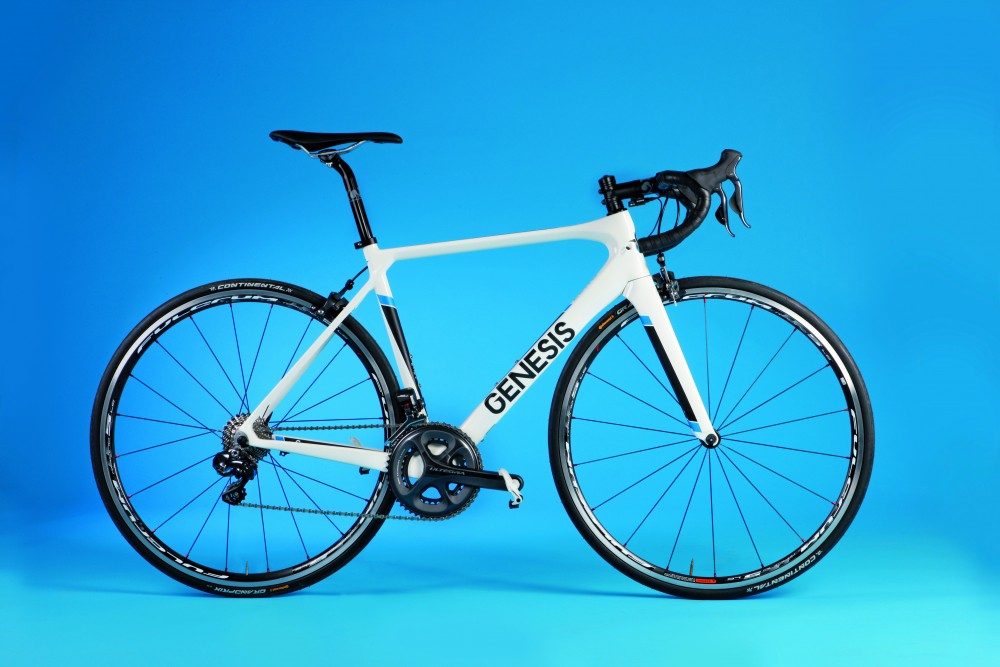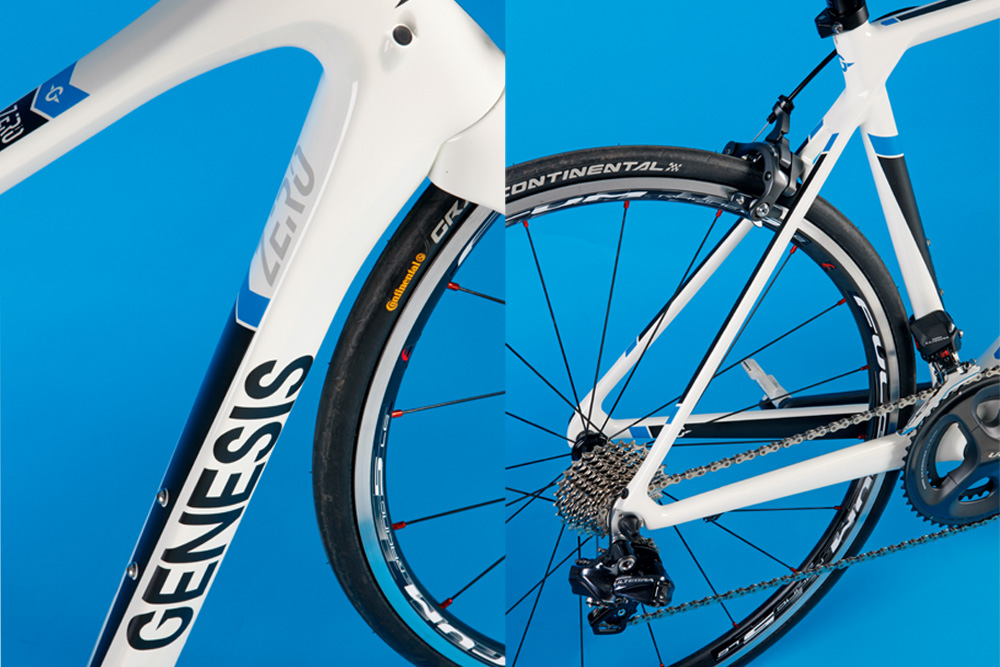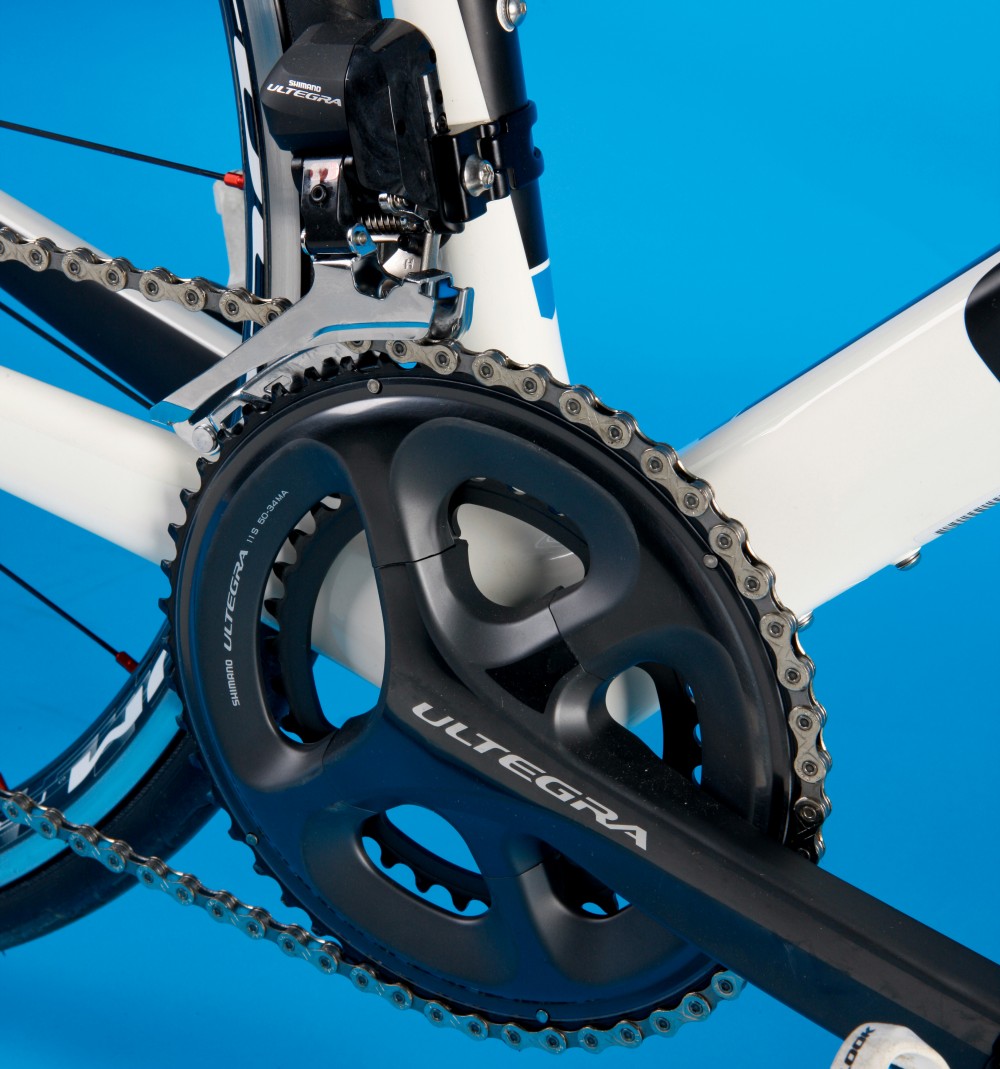Genesis Zero i Ultegra race bike review
A company known for its love of metal, Genesis makes a strong step into the carbon market

A company known for its love of metal, this fast, lightweight and comfortable offering, with a range of specs, makes a strong step into the carbon market
-
+
Designed in the UK
-
+
Fast, lightweight and comfortable
-
-
Very few
You can trust Cycling Weekly.
In the beginning, Genesis attached its flag securely to the mast and saluted the more traditional frame materials: steel, titanium and aluminium. The firm quickly became synonymous with producing metal bikes at a time when the trend suggested that everyone wanted carbon.
Genesis knows there is still life in metal. The company proved that when they sponsored UCI Continental team Madison-Genesis with the Volare, a steel race bike made from Reynolds 953 tubing, for its first couple of seasons.
Madison-Genesis’s UK-based racing schedule is predominantly made up of British single-day races and criteriums — and their steel bikes don’t hold them back. They are one of the top teams in the UK and one with a cult following; nostalgic fans admire the blue, orange and black frames.
When the UCI inspectors did their rounds before a race to check bikes weren’t under the 6.8kg weight rule, Madison-Genesis were able to relax. The Volare only just made it in under 7.5kg: hardly a porker in the grand scheme of things, but morbidly obese compared to some of its flyweight competitors.

Having identified this weight issue, the brand produced the Genesis Zero i race bike for the team’s assault on the Tour of Britain. As the team’s objectives get bigger, they need bikes that won’t put them at a disadvantage. Going into a hillier race, such as this year’s Tour of Britain, with a heavy bike would be like rocking up to a gunfight with a pea-shooter.
Rather than re-badge something mass-produced, Genesis designed the frame from the ground up, and did so in the UK. The designers worked closely with the team to hone the bike. It had three key design objectives: low weight, aerodynamics and comfort.
The new frameset weighs a claimed 950g, considerably lighter than the steel Volare (the Team frame weighs 1.6kg). It feels infinitely fresher and quicker to respond to variations in a rider’s effort than its steel stablemate.
The latest race content, interviews, features, reviews and expert buying guides, direct to your inbox!
The weight is noticeable by its absence through the frame’s chassis, where a big down tube, plus box-section chainstays, give designers more surface area and the space to fit a wide BB86 press-fit BB shell. Objective: light weight. Check.
For a company only just coming around to carbon, Genesis certainly doesn’t hold back on the development front. The Genesis Zero i Ultegra race bike has adopted an aerodynamic frame profile. The oversized Kamm-tail down tube ensures a stiffer platform and gives the bike an aerodynamic advantage, while at the front end, Zero’s custom fork is designed to flow into the down tube. By closing the gap, Genesis has improved airflow and minimised turbulent air behind the aero-bladed fork, decreasing drag. Objective: improved aerodynamics. Check.
The frame has been designed to take a standard 27.2mm seatpost to provide more compliance than most bladed posts. The rear triangle features pencil-thin seatstays which help to further provide compliance and ease to the ride. Objective: comfort. Check.
The Zero is part of a range of six models starting at £1,299.99 for the Zero.1 and topping out with the Dura-Ace-equipped Team model at £4,499.99. Crucially, the same frame is used throughout the range, which means all customers benefit from the same ride characteristics, no matter how far their budget can stretch.
This model, which sits just below the Team version, comes fitted with Shimano Ultegra Di2. The groupset suits the bike with its functionality and clean aesthetics thanks to the
internal cable routing, and it’s accurate, powerful and intelligent. The gear system ‘knows’ which casette sprocket the chain is on, and trims the front mech accordingly — a development that has eliminated the noise of the chain dragging across the front mech. The battery is also housed out of sight in the seatpost.

Genesis has kitted out the Zero i with a set of Fulcrum Racing 5 LG wheels shod with 25c Continental Grand Prix tyres. The rim has a 23mm rim profile, wider than last year’s version, giving the tyre more room to spread out. Increasing the volume in the rim decreases sidewall flex, which in turn means lower pressures to improve comfort and increase stability. The rest of the bike is finished with Genesis’s own saddle and alloy bar and stem.
Who better to sum up this bike than the Madison-Genesis directeur sportif Roger Hammond?
“The Zero had to be a bike that was very competitive, and something the riders felt comfortable with and something they’d be confident to race on,” he said. “But it also had to be something that a consumer could use every day. Amazingly enough, I think Genesis has managed it.”